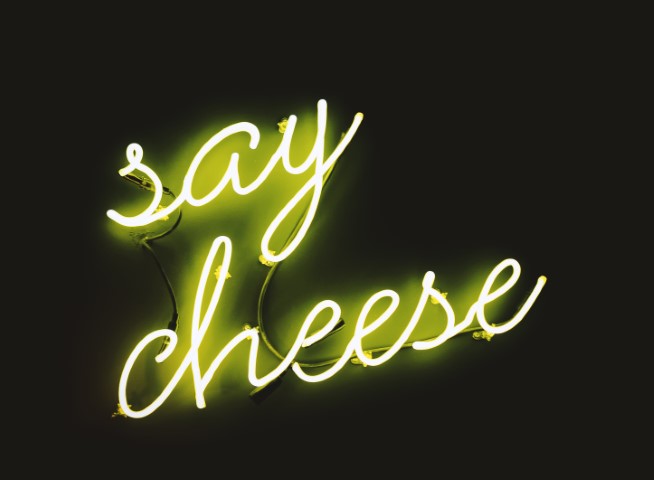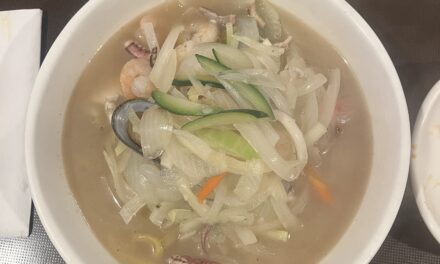An unconventional story of physicist to cheesemaker

by Kelsey Brick

If you have not already heard about it, Fleur Jaune Cheese is a new local artisan cheese company which began operating back in September out of Meuwly’s Artisan Food Market. It is the place to shop for locally sourced and manufactured gourmet foods.
Though the concept for Fleur Jaune had been turning in the mind of owner/cheesemaker Aditya Raghavan for sometime, it was the turbulence of COVID19 that lead to the abrupt problem-solving opportunity that allowed for its inception. But let’s rewind. Because Aditya’s story of cheesemaking is anything but straightforward.
Aditya Raghavan is not, romantically, a 6th generation French cheesemaker with heirloom family secrets. He grew up in Mumbai, India, and settled here in Edmonton as a Postdoctoral Fellow at University of Alberta in the Mathematical and Statistical Sciences department. He holds a B.Sc., M.Sc., and Ph.D. in Physics. What does this have to do with cheesemaking? Fast forward.
Aditya’s cheesemaking story begins with a decent from the Ivory Tower. He spent the first twelve years of his professional life dedicated to the pursuit of pure science.
“It was difficult to leave academia, but it really didn’t feel like it was a good fit. […] So as my interest in physics and math waned, I had this growing excitement towards cooking, which, as a young kid I was always interested in it, but it became more serious.”
And, so, in his early thirties and feeling a little lost, Aditya climbed down from the Tower into the awaiting unknown to begin a second pursuit, the culinary arts.
Oddly enough, he is not the only person I know who has left academia to work with food. My friend and former colleague, Karen McAthy, also left her graduate studies and has become a successful plant-based cheesemaker and chef at Vancouver’s Blue Heron Cheese.
I, on the other hand, find myself leaving the kitchen, after a near-twenty years as a pastry chef, and climbing the Ivory Tower that both Aditya and Karen left behind. I doubt, however, that any of us have truly absolved ourselves of our former tenures: both the kitchen and academia demand a rigor, thoroughness, and consistency that is difficult to repeal. For myself, in knowing Karen, and through the conversation with Aditya, I feel these virtues remain ever present. But I digress.
Over the last decade, Aditya has amassed an impressive culinary repertoire and CV. His experiences have ranged from working on food trucks, in restaurants, to stints on European cheese farms. I asked him if he felt his background in science had contributed to his success. He jokingly lamented the lack of knife skills and other cooking techniques that he did not learn as a theoretical physicist, but gratefully acknowledged what he felt he had gained.
“I do think of things with slightly differently than the average cook would. For example, I tend to look at the broader picture. I try to approach some of these problems [we face in the kitchen] in a more theoretical manner.”
With his growing expertise, gained through cheesemakers in France and Italy and through self-instruction, Aditya started a cheese consulting business on the side. This pursuit eventually brought him home to India. For four and a half years, Aditya was the lead consultant for nine different Indian dairy operations, an experience that allowed him to work with goats, water buffalo, and some of the thirty-two breeds of cattle indigenous to India.
“I was traveling up and down between India and Canada; [I would] go back to India, spend six months or shorter time sometimes, and worked with different dairy farms.”
Impressively, he was able to integrate the raw-milk cheesemaking methods he had learnt in Europe into the Indian cheesemaking culture which has used boiled milk for thousands of years in order to preserve the dairy from spoiling in the country’s tropical climate. The result of his efforts was the establishment of “the most cutting-edge [producers] in Indian artisanal cheeses”.
As a point of pride, Aditya was able to bridge his Indian culture with French cheese making techniques to create a world-class cheese product. I have always wanted to travel to India. And, now, when I go, I have something else to look forward too.
By the 2019 Aditya was back in Canada and began running the brunch team at Café Linnea. But when the COVID19 lockdown happen last March, the restaurant closed down. Interim, Aditya moved over to the sister business, Duchess Bake Shop. Though baking and pastry have never been his passion, he expressed a great appreciation for the opportunity to work with such an established team.
“I learned a lot about how to run a successful business, and how to also have a very good sort of production.”
While Aditya was folding croissants with the Duchess team, three doors down the team at Meuwly’s Artisan Food Market was being confronted with their own COVID19 challenges. The market carries local organic cow and goat’s dairy from Rockridge Dairy and Vital Green Dairy farms. Throughout the pandemic it often found itself with a surplus of milks that were going down the drain. As a business deeply dedicated to the local food movement, it was painfully aware of this wastefulness. So, its chef Roger Letourneau came up with a solution: transform the milk into a value-added product—cheese.
As the proverb goes, necessity is the mother of invention. But, no one on the Meuwly’s team was a cheesemaker. So, Roger reached out to Aditya, who by this time had a well-established reputation in the Edmonton community as a cheesemaker and a consultant. It would be this fateful conversation that would lead to the beginnings of Fleur Jaune Cheese.
“Roger was like, okay, I need to make cheese out of this [milk] so I can preserve it somehow, and he was asking me ideas about cheeses. I was like, Dude, it’s gonna take a long time to go down that path; it’s better if I just come and male cheese for you guys.”
And I guess, the rest is history in the making.

Currently, Fleur Jaune is focused on the niche of young, fresh cheese, something common in Europe, but difficult to find in Canada. Every week Aditya produces a fresh mozzarella from organic Alberta milk, while at the same time producing a stacciatella; basically, stringy noodles of mozzarella curds mixed with cream that create a deliciously sumptuous cheese best consumed in the first four to five days.
Fleur Jaune also produces a variety of seasonally inspired, two-week aged, soft cheeses ripen in molds. These cheeses are best eaten within the two weeks following packaging. And, this summer Aditya is looking forward to the introduction of a cold-pressed canola oil feta – a cheese that promises to be moist and fresh on the palate for those hot sunny days.
At the start of our conversation, I asked Aditya a question. If you were stranded on a desert island and could only have one cheese with you, what would it be?
He replied, “I would say reblochon, it is a cheese from the French Alps. […] When it is ripe its really gooey and oozing, […] when it is young, it has a firmer texture more like gouda. And so, I have the ability of enjoying the same cheese over various different stages of its life to have some variability if I am stuck on an island.”
COVID19 has been like a proverbial desert island; however, for many, that island has been their house. If I could be trapped with only one cheese, I think it would be a 100% sheep’s milk Spanish Manchego. What about you?
Currently, Fleur Jaune cheeses are available for retail purchase at:
Meuwly’s (101, 10706 124 St NW, Edmonton) and can be found in Meuwly’s monthly Secret Meat Club subscription box (Gourmet Package) which is available for delivery throughout Alberta.
On the menu at: Partake (12431 102 Ave NW, Edmonton), the Marc (9940 106 St NW, Edmonton), Smokey Bear (8223 104 St NW, Edmonton), Chartier (5012 50 St #102, Beaumont) and occasionally Biera (9570 76 Ave NW, Edmonton).
Fleur Jaune Cheese Instagram


